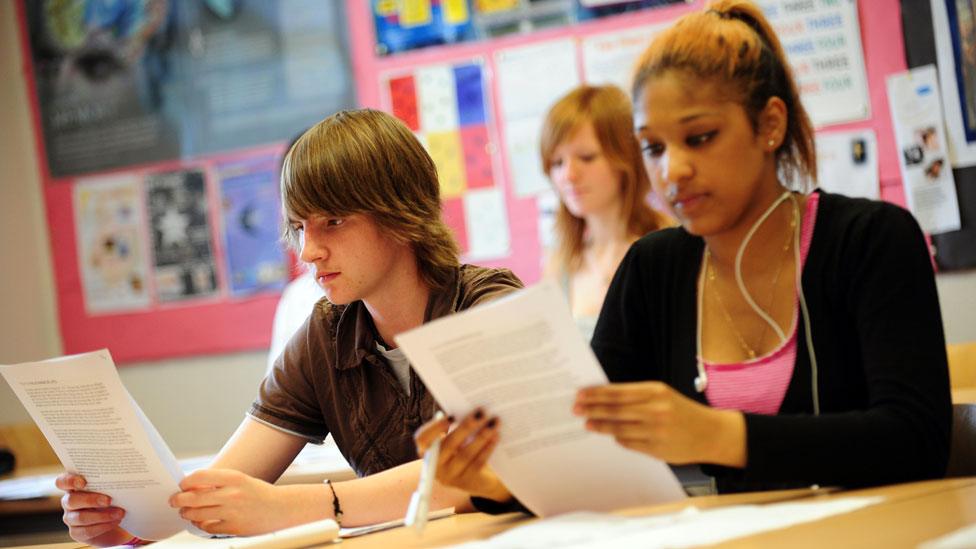University admissions could face emergency controls
- Published
- comments

University applications have been caught up in the uncertainty of the coronavirus outbreak
Universities in England could face fixed limits on how many students they each recruit, in a bid to create more stability and reduce financial threats.
There are concerns that the uncertainty caused by the coronavirus could leave some universities with too few applicants to stay financially viable.
It is understood that emergency controls are being considered to stop a free-for-all in student recruitment.
But Universities UK said any "stability measures" had not yet been decided.
"Financial support from government for universities is necessary," said the university group's chief executive Alistair Jarvis.
But he said any response such as controls on student numbers would need "more detailed consideration" and so far had not been approved by Universities UK.
"There would need to be a clear case of the benefits, any proposal would have to be sector-led not imposed, strictly time-limited and carefully crafted to avoid unintended consequences," he said.
A government source described the idea as "speculation".
But the vice chancellor of Sheffield Hallam University, Sir Chris Husbands, said student number controls were necessary during the current crisis "to ensure that institutions have a viable first-year-student population".
Sir Chris, in a paper for the Higher Education Policy Institute, says "radical action is needed on university admissions for the foreseeable future. This means suspending the market in admissions".
The aim would be to encourage more stability in an admissions round caught up in the coronavirus outbreak, which has closed schools and universities and cancelled exams.

Universities are divided over whether to back student number controls
More students than usual might defer entry and take a gap year - with universities uncertain about whether they will be able to re-open campuses for the autumn.
Universities are also expecting a fall in overseas student numbers - making funding from home students even more important.
Last week the higher education watchdog intervened to stop universities making unconditional offers, after fears that some were recruiting large numbers of students by promising places regardless of their grades.
With A-level exams scrapped and grades set to be based on teachers' assessments, the Office for Students and the universities minister Michelle Donelan were concerned that anxious students might switch to the promise of an unconditional offer.
But there were also concerns that the volatility around this year's applications could leave some universities with such a shortage of students that it would threaten their financial stability.
Universities are understood to remain divided over a response.
Introducing student number controls would mean individual universities would not be allowed to expand.
This would ensure that the share of students between universities stayed similar to the current levels, providing them with more security over tuition fee income.
But student number controls would also mean a limit on student choice - so that popular universities would not be able to add extra places.
It will also raise questions about what will happen if universities have offered more places than they will be allowed to provide.
Nick Hillman, director of the Higher Education Policy Institute, said: "The crisis is fast becoming the catalyst for the return of student number caps."
He warned that it might bring short-term stability, but at the expense of stopping the expansion of university places and limiting the choices of individual students.
A Department for Education spokeswoman said the department would "continue working closely with the sector to manage the impact of coronavirus".

A SIMPLE GUIDE: What are the symptoms?
AVOIDING CONTACT: Should I self-isolate?
LOOK-UP TOOL: Check cases in your area
MAPS AND CHARTS: Visual guide to the outbreak

- Published23 March 2020
